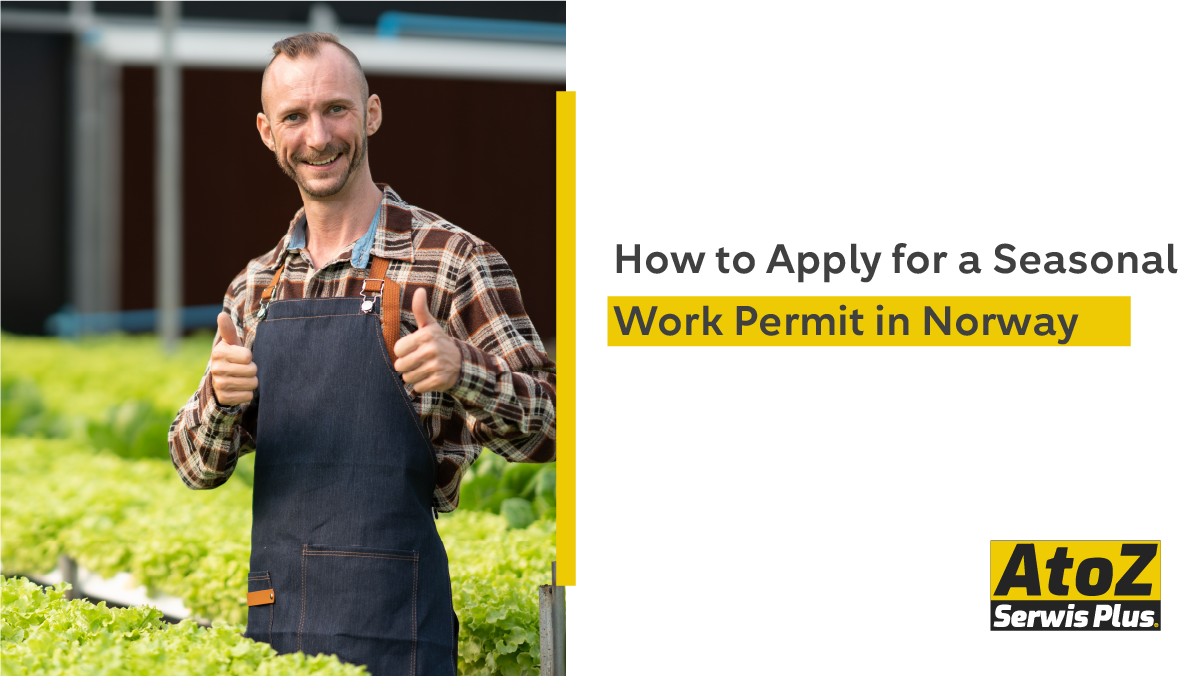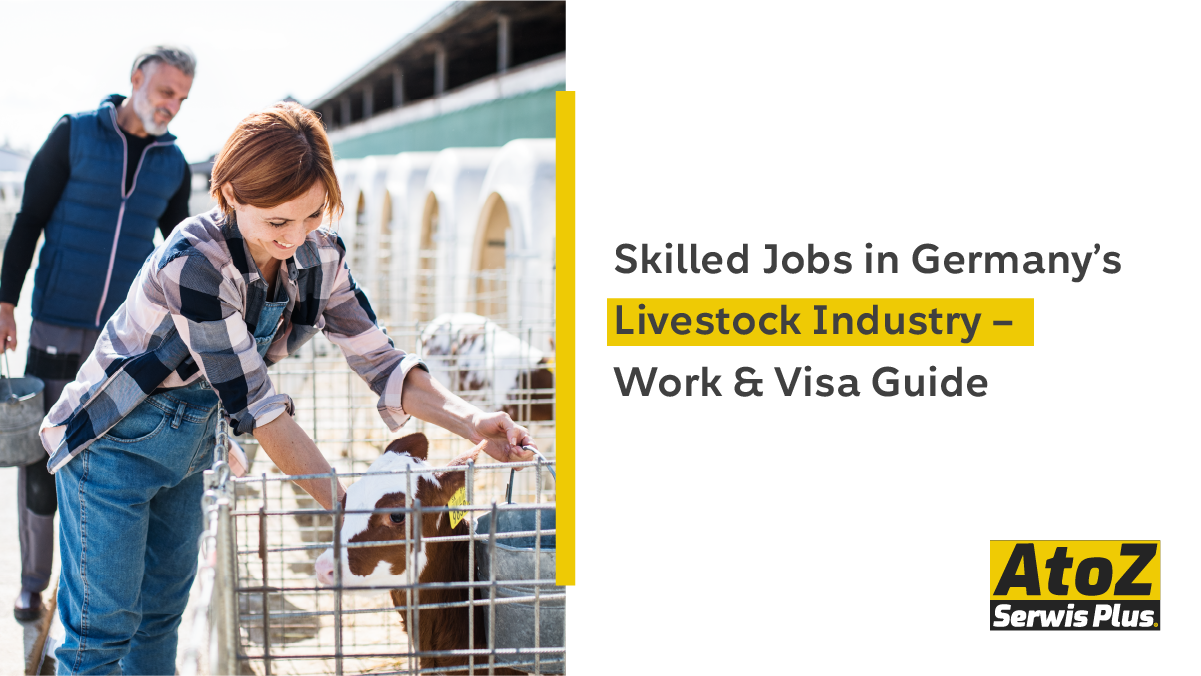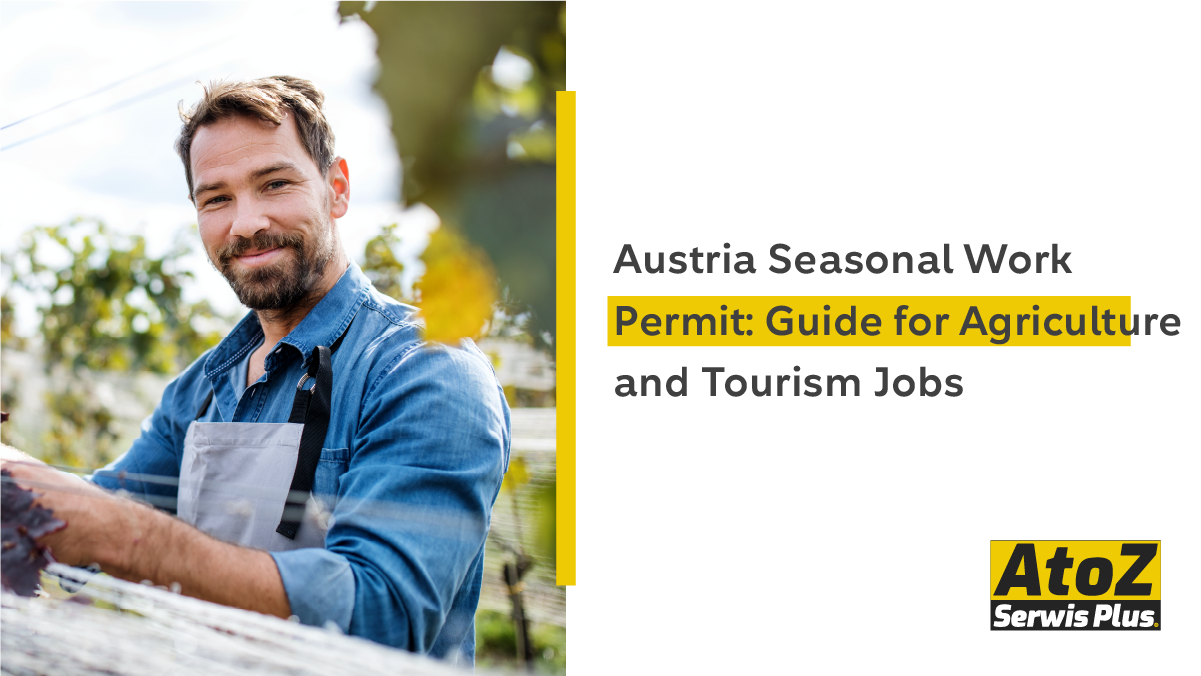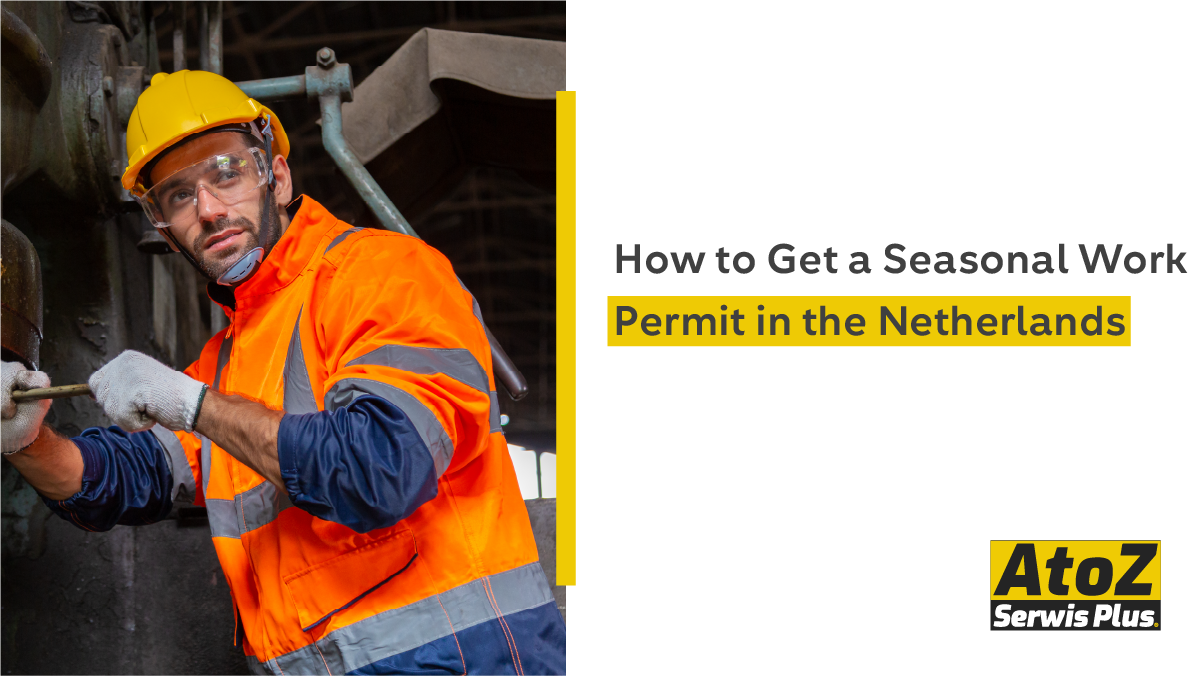

How to Apply for a Seasonal Work Permit in Norway
Seasonal work in Norway is becoming increasingly popular among foreign nationals, especially for those outside the EU/EEA who are looking for legal short-term employment in Europe. The country’s economy has many industries that depend heavily on seasonal labour. Agriculture requires large numbers of berry pickers in the summer, fisheries rely on extra workers during the seafood harvest, forestry needs a workforce for logging and replanting, and tourism creates hundreds of temporary roles during the ski season and summer holidays.
Because the demand is temporary, Norway created the Seasonal Work Permit (Sesongarbeidstillatelse) to ensure these jobs are filled legally, safely, and fairly. This permit allows non-EU citizens to come to Norway for a few months, earn competitive wages, and return home after their contract ends. The entire system is carefully regulated by the Norwegian Directorate of Immigration (UDI), which oversees foreign worker permits and ensures employers follow labour standards.
This guide gives you a complete explanation of the permit requirements, who can apply, the types of jobs available, the application process step by step, required documents, salary expectations, workers’ rights, and what life is like for seasonal employees in Norway.
What is a Seasonal Work Permit in Norway?
A Seasonal Work Permit is a temporary residence and work permit that allows non-EU/EEA nationals to participate in jobs that are available only during specific times of the year. Unlike permanent work permits, this visa is strictly limited in duration. The maximum stay allowed is six months within any twelve months.
The key point about this permit is that the job itself must be seasonal in nature. This means it cannot be an ongoing year-round role like office work or permanent factory jobs. Instead, it must be linked to a specific season — for example, strawberry harvesting in summer, fish processing during fishing seasons, or staffing ski resorts during the winter tourist rush.
Another important detail is that this permit does not lead to permanent residence. It is designed purely for short-term labour needs. However, many workers return to Norway season after season by applying again with new contracts, and employers often invite back reliable workers for the following year.
Who Can Apply for a Seasonal Work Permit in Norway?
The Seasonal Work Permit is available for people who are citizens of countries outside the EU/EEA and Switzerland. If you are an EU or EEA citizen, you do not need a permit to work in Norway.
To qualify, applicants must meet several conditions:
- A valid job offer is mandatory. You cannot apply speculatively. Your employer must issue a signed employment contract that clearly outlines the role, salary, and duration of the job.
- Health insurance must be in place. Norway has strict requirements for health coverage, and seasonal workers must show proof that they will be protected if they fall ill or are injured during their stay.
- Accommodation must be arranged. Workers must demonstrate that they will have a place to live, either through a lease agreement or housing provided by the employer.
- Applicants must intend to return home once the contract ends. Overstaying a seasonal permit is taken seriously and can result in deportation and a ban from entering the Schengen area.
These requirements are in place to protect workers from exploitation and ensure they are entering Norway under safe and legal conditions.
In-Demand Seasonal Jobs in Norway
Norway’s seasonal labour demand is spread across several industries, and many of these jobs do not require advanced qualifications. Still, they do require reliability, physical stamina, and a willingness to work in sometimes challenging conditions. Farming and agriculture are the largest employers of seasonal workers. The most famous jobs are berry picking — especially strawberries and blueberries — but there is also demand for vegetable harvesting, potato farming, and work in greenhouses where crops such as cucumbers and tomatoes are grown. These jobs are labour-intensive but often come with accommodation provided on or near the farm.
Fisheries and Aquaculture are another huge sector. Norway is one of the world’s top exporters of salmon and cod, and seasonal staff are hired to help process and pack seafood in factories. These roles may involve long shifts, but are among the better-paying seasonal jobs.
Forestry work is physically demanding but essential. Norway manages vast forests, and seasonal staff are needed for logging, planting new trees, and preparing timber for processing. Workers often live in rural areas and sometimes receive housing support from employers.
Hospitality and Tourism provide many jobs during peak travel seasons. Winter brings openings in ski resorts for receptionists, servers, and cleaners, while summer requires staff for hotels, cruise tourism, and catering services. Many jobs include free meals and accommodation in staff housing.
Reindeer Herding, though less common, is unique to Northern Norway and the Sami people. Seasonal workers help with herding, feeding, and caring for animals. This is more than just a job; it is a cultural experience.
Required Documents for Application
When applying for the Norwegian Seasonal Work Permit, you must prepare a complete set of documents. Missing or incomplete paperwork is one of the most common reasons for delays or rejections.
- Valid Passport – Your passport must be valid for the entire duration of your stay in Norway. If it expires soon, you should renew it before applying.
- Employment Contract – A signed contract with a Norwegian employer that specifies your job role, salary, work location, and employment dates. This contract must comply with Norwegian labour laws.
- Proof of Accommodation – Documents showing you have a place to live in Norway, either provided by the employer or through private rental.
- Health Insurance – Proof of insurance coverage valid in Norway for the duration of your stay. Employers often help arrange this, but it is your responsibility to ensure it is in place.
- Application Form – Completed via the UDI Application Portal or at a Norwegian embassy/consulate.
- Biometric Photos – Passport-sized photos that meet biometric requirements.
- Proof of Financial Means – In some cases, you may be required to demonstrate that you can support yourself if employer-provided benefits are insufficient.
- Fee Payment Receipt – The application fee of NOK 6,300 (approx. €550) must be paid before your application can be processed.
Step-by-Step Application Process
Step 1: Find a Job Offer
The first step is to secure employment. You can look on the official NAV Job Portal (nav.no), use licensed recruitment agencies, or apply directly to companies in agriculture, fisheries, or hospitality.
Step 2: Employer Responsibility
Your Norwegian employer must confirm the job with NAV and provide the necessary details to UDI. This ensures the role qualifies as seasonal and meets labour law standards.
Step 3: Prepare Documents
Gather all the required paperwork. Ensure that contracts are signed, your passport is valid, and all insurance and accommodation arrangements are adequately documented.
Step 4: Submit Application
You can apply online via the UDI Portal or submit documents at your nearest Norwegian embassy or consulate.
Step 5: Pay the Fee
The fee is NOK 6,300. Payment can be made online during the application or at the embassy.
Step 6: Processing Time
Processing usually takes 4–8 weeks. UDI or the embassy may contact your employer to verify information.
Step 7: Biometrics
You must provide fingerprints and a photograph at an embassy or, if already in Norway, at a police station.
Step 8: Receive a Decision
If approved, you will get a residence card or visa sticker. This is proof that you can legally work as a seasonal worker.
Step 9: Travel to Norway
Upon arrival, you must register with the local police station and report to your employer before starting work.
Step 10: After Employment Ends
When your contract finishes, you must leave Norway. Overstaying may result in severe penalties, including bans from Schengen countries.
Salaries for Seasonal Workers
Norway pays some of the highest wages in Europe for seasonal work. For example:
- Agriculture: €12 – €15 per hour, with many employers providing free or cheap accommodation and sometimes meals.
- Fisheries: €14 – €18 per hour. Work is challenging but well-paid, with protective gear and meals often included.
- Forestry: €13 – €17 per hour, sometimes with outdoor work allowances.
- Hospitality: €14 – €20 per hour. Staff housing and free meals are standard.
- Reindeer Herding: €12 – €15 per hour, with housing provided by the employer.
These salaries are much higher than in many other seasonal work destinations, making Norway a top choice for workers from outside the EU.
Worker Rights and Employment Rules
Norwegian labour law vigorously protects employees. Seasonal workers benefit from:
- Working Hours: A standard of 40 hours per week. Any overtime must be paid at a higher rate.
- Wages: Determined by collective agreements for each industry. Seasonal workers must be paid the same as local workers in similar roles.
- Contracts: Employers must provide a written contract outlining all key terms.
- Health Insurance: Mandatory for all workers. Employers usually assist in arranging this.
- Taxes: Income tax is deducted from your salary. Seasonal workers must apply for a Tax Card (skattekort) from the Norwegian Tax Administration.
- Accommodation: In many industries, especially agriculture and tourism, employers provide or arrange housing at reduced costs.
Why Choose Norway for Seasonal Work?
There are many reasons why Norway is one of the best countries for seasonal employment:
- High Wages: Salaries are among the highest for seasonal work in Europe.
- Legal Protection: Workers are fully protected under Norwegian labour law.
- Free Benefits: Many employers provide free or subsidised housing, meals, and protective equipment.
- Safe and Stable Country: Norway is consistently ranked as one of the safest and most stable countries in the world.
- Cultural Experience: Seasonal work allows you to explore Norway’s natural beauty, culture, and traditions while earning money.
FAQs
- How long can I stay in Norway on a seasonal permit?
Up to 6 months in 12 months. - Do I need a job offer to apply?
Yes, a valid job offer is mandatory. - What is the application fee?
NOK 6,300 (~€550). - Which industries hire seasonal workers?
Agriculture, fisheries, forestry, hospitality, and reindeer herding. - Can I extend my permit?
No, extensions are not possible beyond 6 months. - Do EU citizens need this permit?
No, EU/EEA nationals can work freely in Norway. - Can I bring my family?
No, family reunification is not permitted on this type of visa. - How long does processing take?
Usually between 4 and 8 weeks. - Is health insurance required?
Yes, it is compulsory for all seasonal workers. - What salaries can I expect?
Between €12 and €20 per hour, depending on the industry.
Final Thoughts
Norway offers some of the best short-term job opportunities in Europe. With high wages, strong labour protections, and thousands of vacancies in industries like farming, fishing, and hospitality, it is an ideal destination for non-EU nationals seeking seasonal work.
The process requires preparation — securing a job offer, collecting documents, and applying on time — but once approved, seasonal workers can expect fair contracts, safe working conditions, and valuable cultural experiences.
AtoZ Serwis Plus can help you find legitimate seasonal jobs, prepare your paperwork, and guide you through the application process for a Seasonal Work Permit in Norway.


















